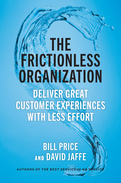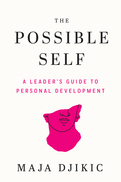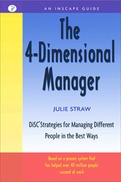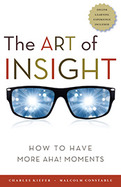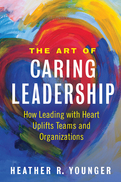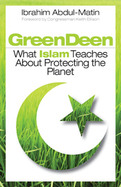This book will help any customer-facing organization deliver better customer experiences, save money, and increase revenue. Veteran customer service experts Bill Price and David Jaffe, coauthors of the bestseller The Best Service Is No Service, explain how organizations can design products, sales, and support so that customer effort is reduced or, better still, removed. This simplicity for the customer is what Price and Jaffe call frictionless.
The book defines a straightforward methodology, drawing on more than thirty practical examples from leading companies across four continents. The approach provides a radically different way for the whole business to focus on the customer experience. It explains how any organization can look at all customer interactions as potential opportunities for improvement and question whether they are helpful or represent symptoms of friction.
Lower friction innovators are disrupting established businesses in every industry. This detailed guide shows how any business-from start-ups to major multinational corporations-can remove friction. Being frictionless has become a strategic necessity, and now this strategy is available to any organization.
2024
Sometimes success isn't enough—discover how to achieve lasting, whole-life fulfillment through a simple five-stage plan that corresponds with the five key parts of ourselves.
We're often told that the key to success in life involves advancing in our careers, so why do feel stuck and unfulfilled when everything seems to be going right?
Adult development expert Maja Djikic explains that in order to discover our purpose and achieve real, lasting change, we need to move beyond narrowly targeted ideas and strategies like changing our mindset or slightly altering one aspect of our behavior. Instead, we need to go deeper and focus on our innate desires.
Djikic says that sustained change can only happen when our whole self moves holistically the same direction and at the same time. She introduces a transformational system called the Wheel of Change—a simple, five-segment plan that corresponds with the five key parts of ourselves: Desires, Actions, Emotions, Thoughts, and Body.
By understanding the mechanisms of these five integral parts, you will be able to escape the paradox of success without happiness and move towards your own path of fulfilling self-development.
Manager: "We have a problem here."
Person 1: "Let's find a quick solution."
Person 2: "I know just how we can solve this problem by working together."
Person 3: "I need to think about the problem before I can offer you a solution."
Person 4: "I'm going to consider this problem from every angle."
Asked to solve the same problem, four people responded four different ways. If you were their manager, your challenge would be to help each individual find an effective, timely solution to the problem. Most managers would do what comes naturally and use the managerial style that is their "first dimension." This will work some of the time - but not all the time.
One managerial style can't help people with four different working styles make the most of their different strengths and overcome their different limitations and roadblocks. In managing others, one style does not fit all. The 4-Dimensional Manager will help you learn to manage different people in the best ways. Through a simple yet powerful self-discovery tool called DiSC, you can become a 4-dimensional manager, able to manage anyone, anywhere, anytime.
- Discover your usual managerial style: Dominance, Influence, Supportiveness, or Conscientiousness
- Read the work styles of the people you manage
- Improve communication and reduce destructive conflict
- Find out how the style of your organization affects you and those you manage
Whether or not you have the formal title of manager, if you provide work direction to others, this book will answer pressing questions you have every day, such as:
- When I delegate, how much information should I give, and when and how should I follow up?
- How can I increase this person's motivation?
- What kind of compliment or reward would this person most value?
- How can I give feedback so it will be understood, accepted, and effective?
- Offers a proven and practical tool managers can use to quickly and accurately assess each employee's work style and adapt their management style to meet the needs of the employee and the situation
- Includes the DiSC(r) self-help tool that has been used by more than 40 million people around the world
- The second book in the "Inscape Guide" series
2013
What if insights could be accessed more reliably in everyday life?
- Shows how to have insights when you need them, instead of as an occasional welcome surprise
- Packed with real-world business and personal examples and hands-on exercises, including access to a full-featured companion website
- Offers a flexible, creative process, not a rigid set of rules
- Includes Online Learning Experience (coming soon on this website)
We have all experienced it: the jolt of an insight arriving like a thunderclap, the metaphorical light bulb over your head as you drive to work, take a shower, or unload the dishwasher. These all-too-elusive "aha moments" come sporadically and without warning. But what if insights could be accessed more reliably in everyday life? Charles Kiefer and Malcolm Constable have the tools to make this possibility a reality.
Based on the authors' years of research, reflection, and experiences with colleagues, friends, and business clients, The Art of Insight presents practical methods for recognizing and cultivating an insight state of mind. All too often, decision making is a forced experience that promotes recycling of old ideas and old ways of thinking. Kiefer and Constable's Insight Thinking Methods are designed to foster fresh thoughts and perspectives. But this is not a rigid set of rules-it's a creative pursuit. Guided by their user-friendly practices and helpful exercises-both in the book and online-you'll develop your own personal approach to cultivating a mindset where insights come readily so that new or longstanding problems are solved with confidence and ease.
It is the simple truth that one insight can change your life, and the next can change your organization or even the world. A go-to-guide that can make the complicated effortless, The Art of Insight offers a path to becoming a more effective thinker and decision maker.
The Online Learning Experience, whcih is free to owners of the book, includes over 21 minutes of video instruction and demonstrations, and these four self-directed and multiple-person exercises: 1) Listening, 2) Fresh Thought Hunt, Coaching Fresh Thought, and 4) Trio.
Here's the thing: most leaders think of themselves as caring leaders, but not all of them act in alignment with what that means for employees. Leaders may not be able to identify the level of care they are extending to their employees, but all employees intuitively know whether their bosses or managers are caring for them. Heather Younger argues that if you are looking for increased productivity, customer satisfaction, or employee engagement, you need to care for your employees first.
Genuinely caring for people means that you want to see them succeed for themselves, not just for what they can do for you, your team, or your organization. This book incorporates ten sections with breakout stories and interviews that outline the necessary steps to make all employees feel included and cared for, as well as a call to action for all leaders. Younger states that leaders who have the positive power to change the lives of those they lead shouldn't just want to care for them; they should see it as imperative for the success of their employees and their organization.
2010
-
The first book to show how strongly the tenants of Islam support and promote environmentalism
-
Offers dozens of examples of what Muslims can doand are already doingto promote ecologically sound practices in their communities
-
Written by a Muslim community organizer speaking directly to other Muslimsbut accessible and illuminating to non-Muslims
Islam calls believers to praise the Creator, take care of each other, and take care of the planet. But the deep and long-standing convergences between Muslim beliefs and environmentalism arent widely known by other religions, in secular society, or even among many Muslims. In this groundbreaking book, Ibrahim Abdul-Matin draws on scripture, research, and viewpoints of Muslim scholars and community leaders to trace Islams historical and contemporary preoccupation with humankinds collective role as stewards of the Earth. As Abdul-Matin points out, the Prophet Muhammad himself declared that, the Earth is a mosque.
The soul of this book is profoundly practical. Deen means path or way in Arabic. Abdul-Matin focuses on how Muslims and Muslim communities can and already are following a Green Deen in four areas: waste, watts, water and grub (food). For example, the Saudi Arabian government has issued a religious ruling making it acceptable to use treated wastewater in the holy cities of Makkah and Medina for performing the ritual washing required of all Muslims. Oakland, Californias Light House Mosque has banned the use of paper plates, Styrofoam and plastic bottles during the evening feast that breaks the daily Ramadan fast. In Chiapas, Mexico there is a Muslim community that lives entirely off the gridmanufacturing its own solar energy and growing its own organic, halal food.
No other book about the environment has been written for Muslims, in language they can relate to. No other book highlights the contributions of Muslims to the environmental movement. No other book helps environmentalists of other faiths and orientations understand the gifts that Islam brings to help the struggle. Green Deen is much needed for Muslims and non-Muslims alike.


